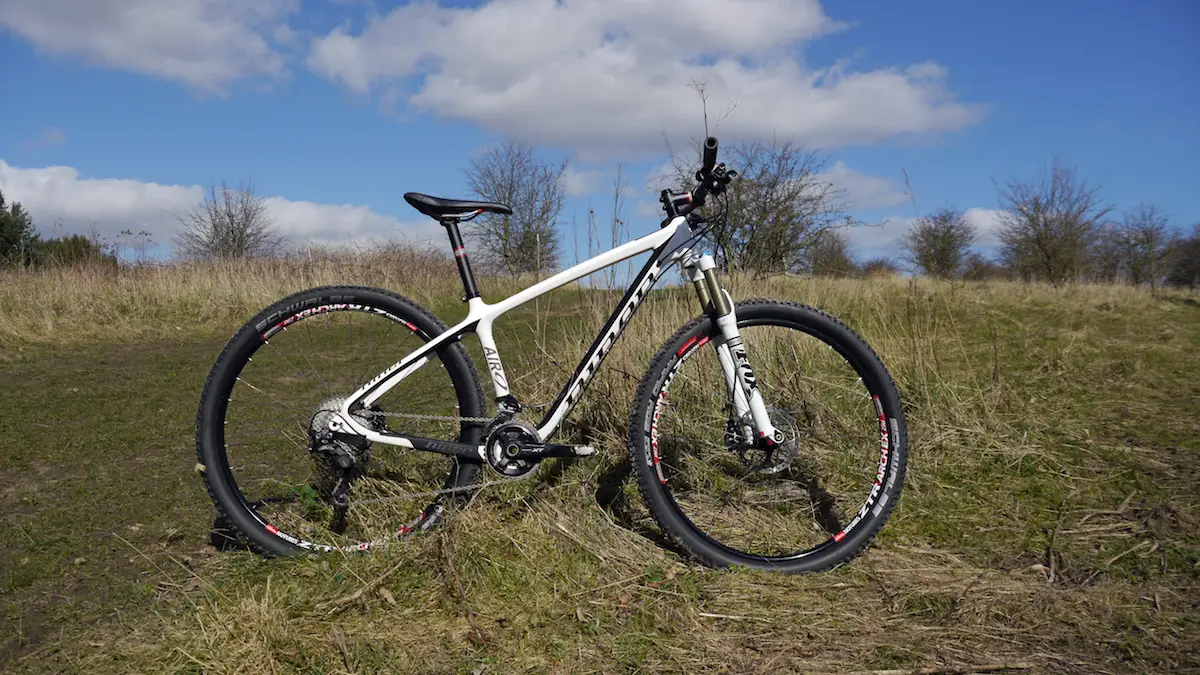Rewind to Issue #105 of Singletrack Magazine for our racebike grouptest with the Niner AIR 9 Carbon.
Niner Bikes has been around since 2005 and was one of the pioneers of the 29er movement. In the cross-country racing world bigger is still better and Niner has stuck solidly to their founding principles – their entire range is only offered in 29in size.
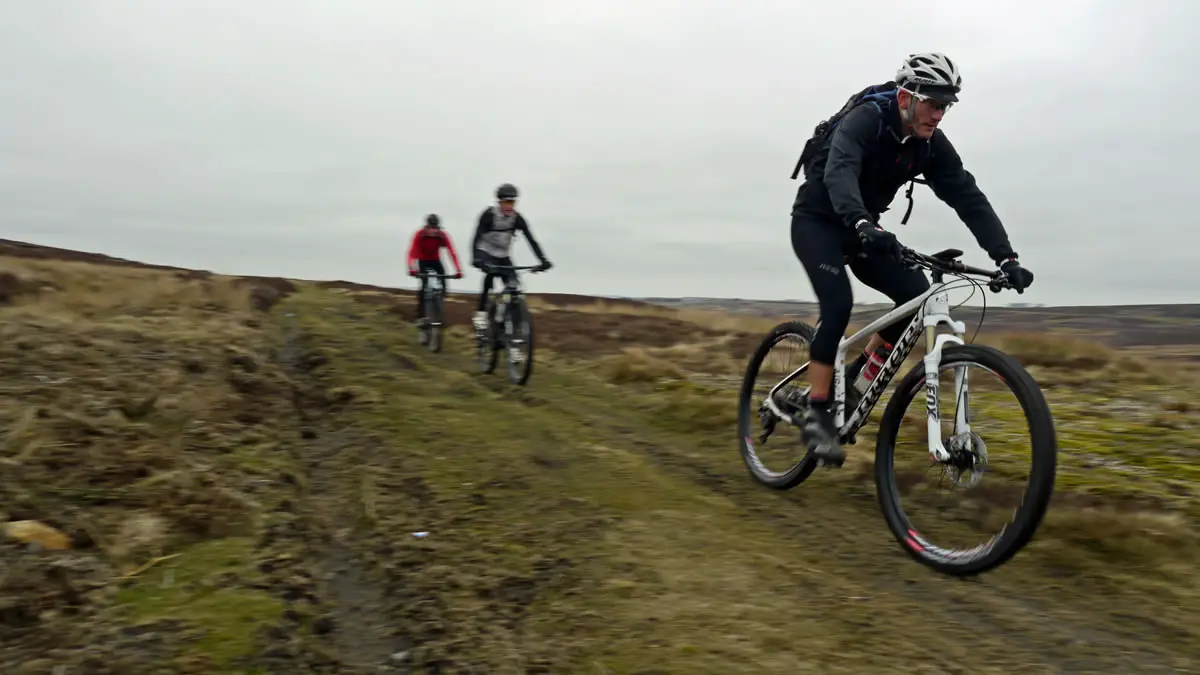
For this test Niner offered us an AIR 9 Carbon. This bike is a pure hardtail and sits second from top in its range of cross-country race bikes. Ours came from the UK distributor, Jungle, and was built with a slightly different spec to the standard model, being fitted with Fox Float 32 Evolution CTD forks (instead of the more standard RockShox Reba RL Solo Air forks) and with Niner-branded Schwalbe tyres (rather than the standard Maxxis Ikons). Ours was delivered with the tyres set up to run tubeless, but unfortunately the tyre sealant proved to be problematic so we spent most of the test ride period using tubes instead.
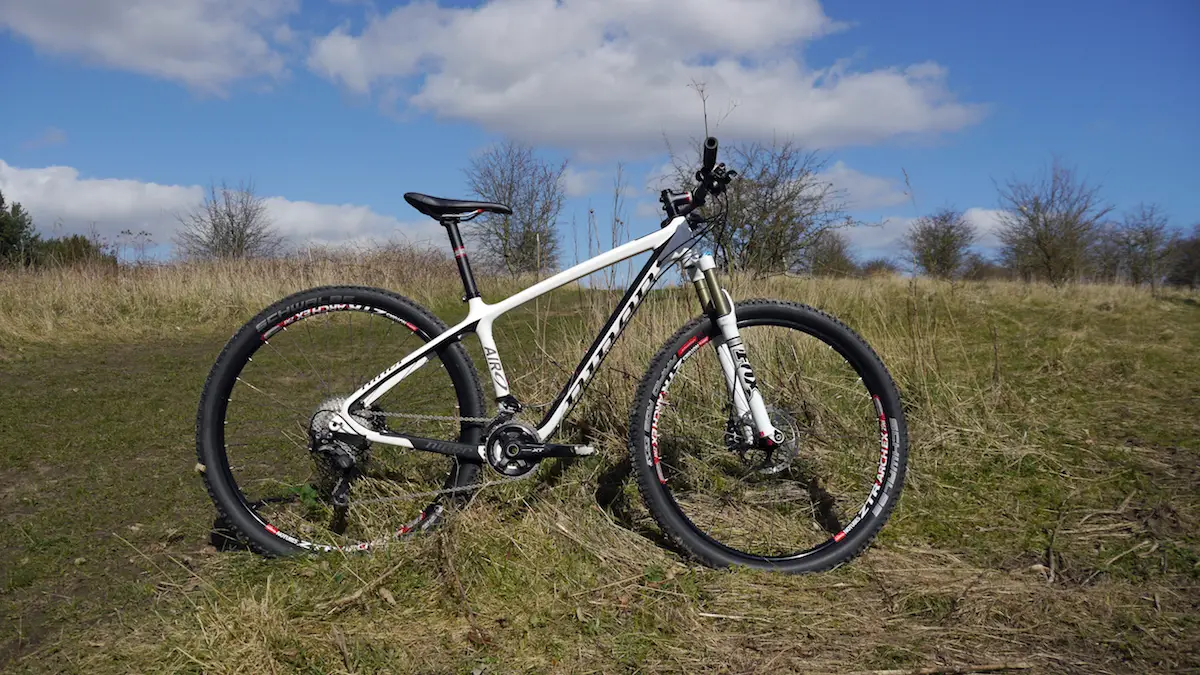
When you first look at the AIR 9, it strikes you as a very distinguished looking bike. The classy black and white colour scheme looks smart without being boring and everything appears well thought through and co-ordinated. The bike has been well put together; the cable runs are super smooth and there’s heli-tape at key points to prevent the cables from rubbing the paintwork. Cables are primarily run internally, but the rear brake hose is external and runs along the outside of the downtube using moulded mount points and small zip ties.
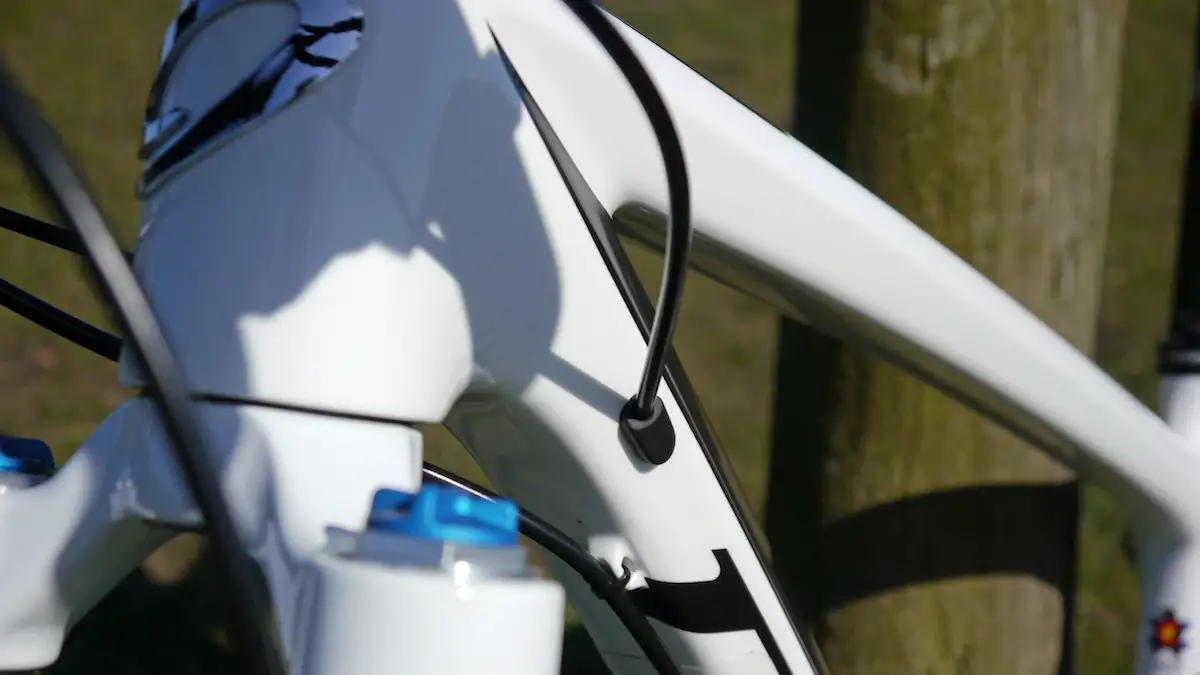
What strikes you next, particularly when viewed next to the Trek Procaliber, is that it’s much less racy looking. With the measuring tape to hand, it turns out that the Niner is 20mm shorter in reach and 20mm taller in stack than the equivalent size Trek. The stack difference is partly down to the Niner being fitted with 120mm travel forks, but also a shorter, higher stem and a wodge of stem spacers adds to this.
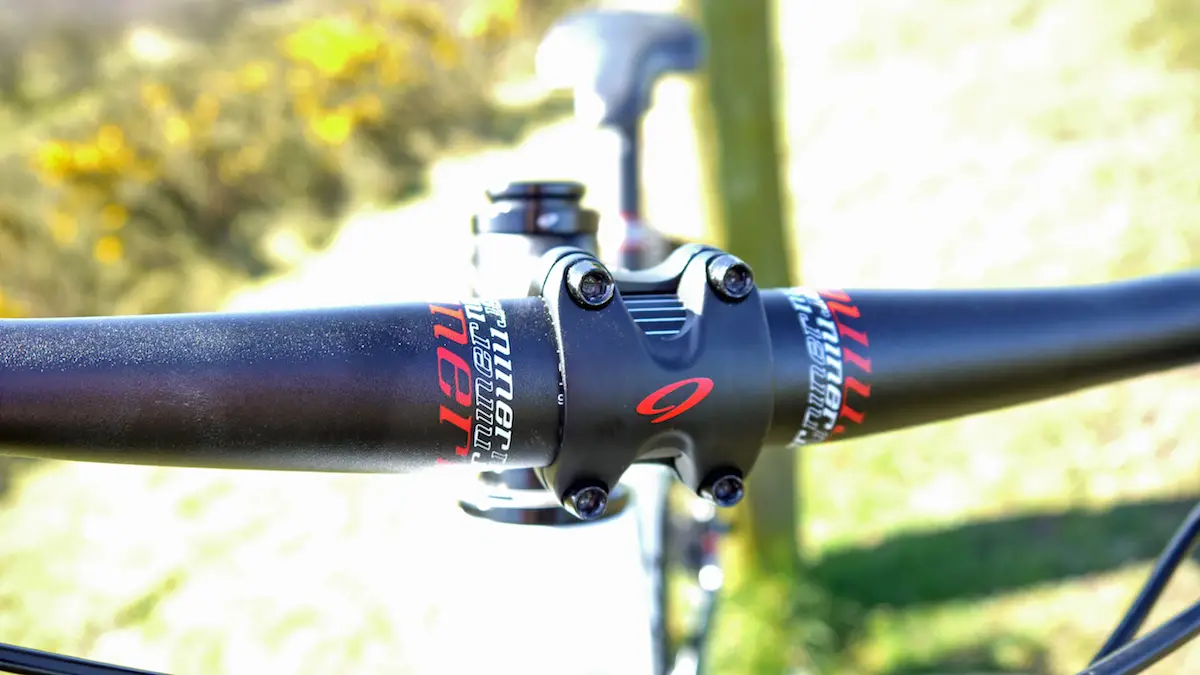
Adding to the trail bike look/feel of the Niner are bigger tyres – 2.4in Schwalbe Rapid Rob and Racing Ralphs (the front one being Niner co-branded), and bigger disc rotors – 180mm at the front and 160mm at the rear. The extra oomph in the componentry is confirmed when you do the mandatory bike heft test – 11kgs/24 lbs without pedals.
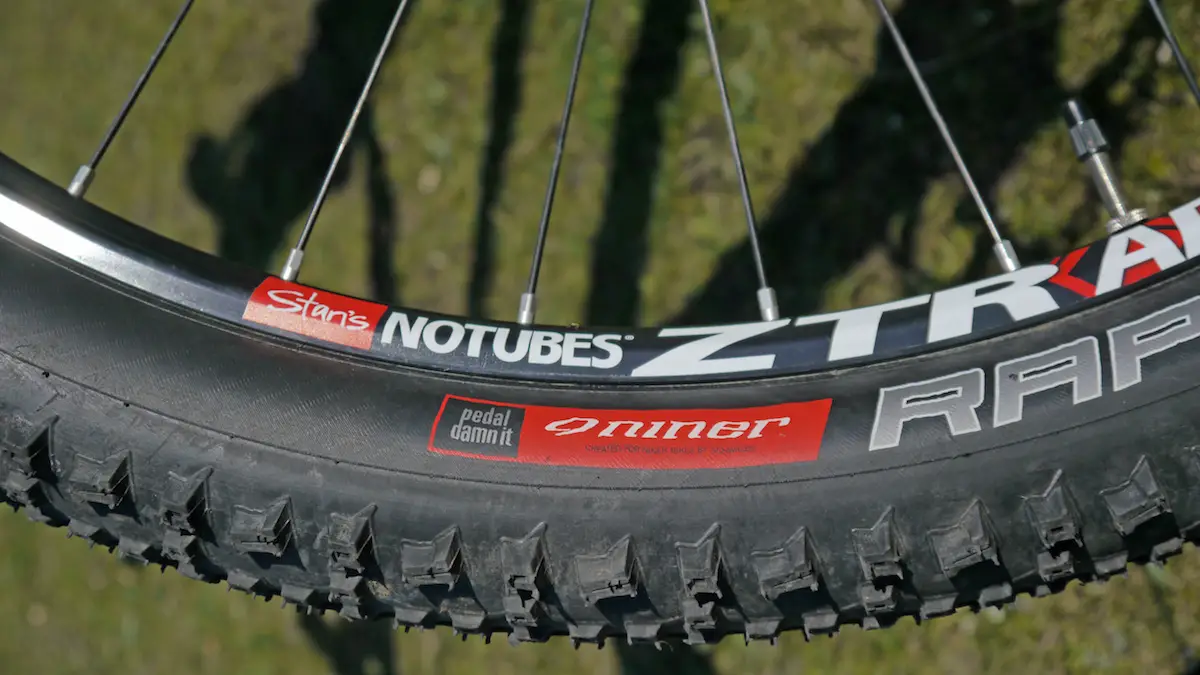
The Niner came fitted with Fox Float 32 Evolution forks, which have a three-way CTD adjuster on top of the right-hand fork leg. This worked really well, switching easily between locked out and super-plush and the lack of a remote lockout didn’t prove to be an issue.
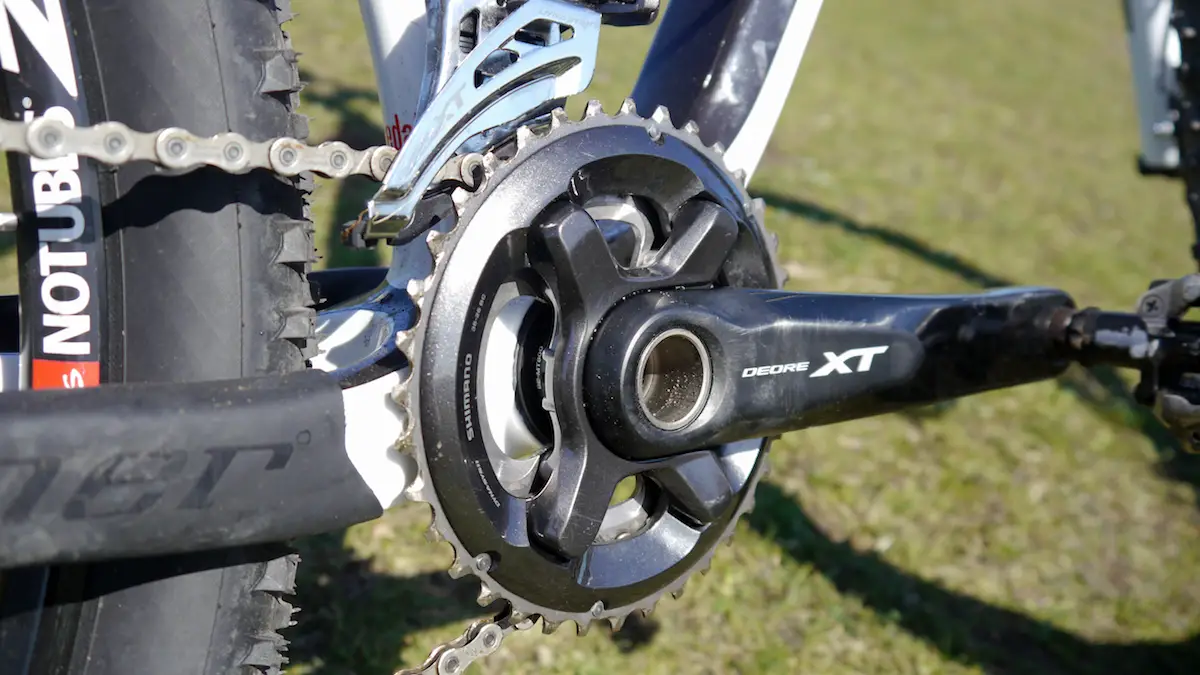
The Niner is kitted out with the latest XT M8000 groupset, in the 2×11 guise. The bike comes with a double 26/36 chainset and 11-speed 11-42 cassette – this gives a massive range of gears. Brakes are XT, and with the larger rotors offered plenty of easy-to-modulate power. The wheel combo of Stan’s hubs/rims and Schwalbe tyres worked well and offered good levels of grip/cushioning/damage protection, but it was a shame not to be able to use the tubeless set-up and run them at lower pressures.
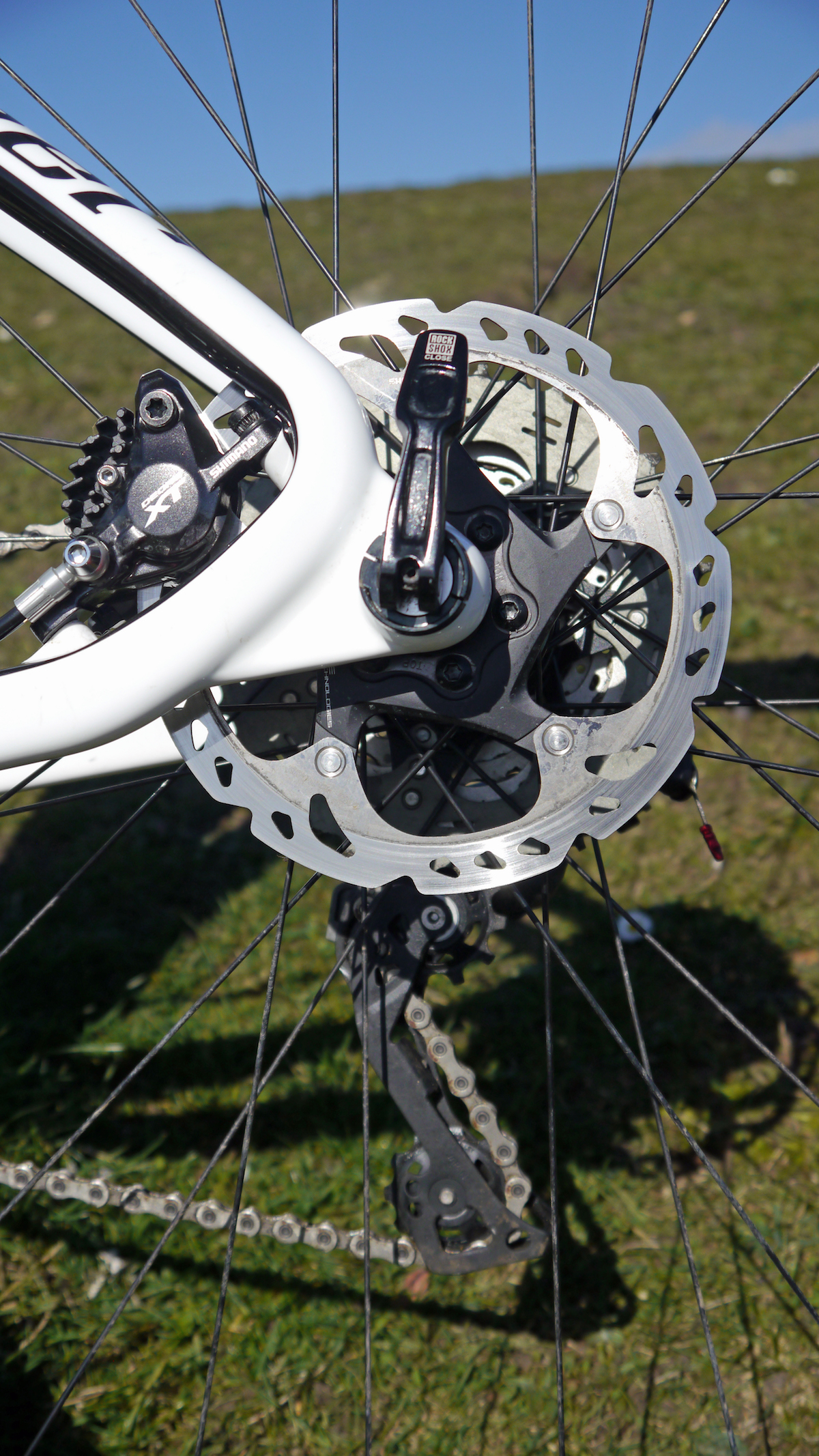
The Ride
When you hop on the bike and take off down the trail, the front end is noticeably taller. This proved to be a boon on nadgery downhills and more technical trails, but was a real hindrance on steep, technical climbing – the front end was too light and ‘wandery’. Some judicious fettling later and the stem was slammed – at which point climbing prowess dramatically improved. It was interesting that when the bars were lowered, more weight was thrown onto the hands/arms of the rider and the aluminium bars proved noticeably stiffer (and so more tiring to use) than the carbon ones of the Trek and the BMC.
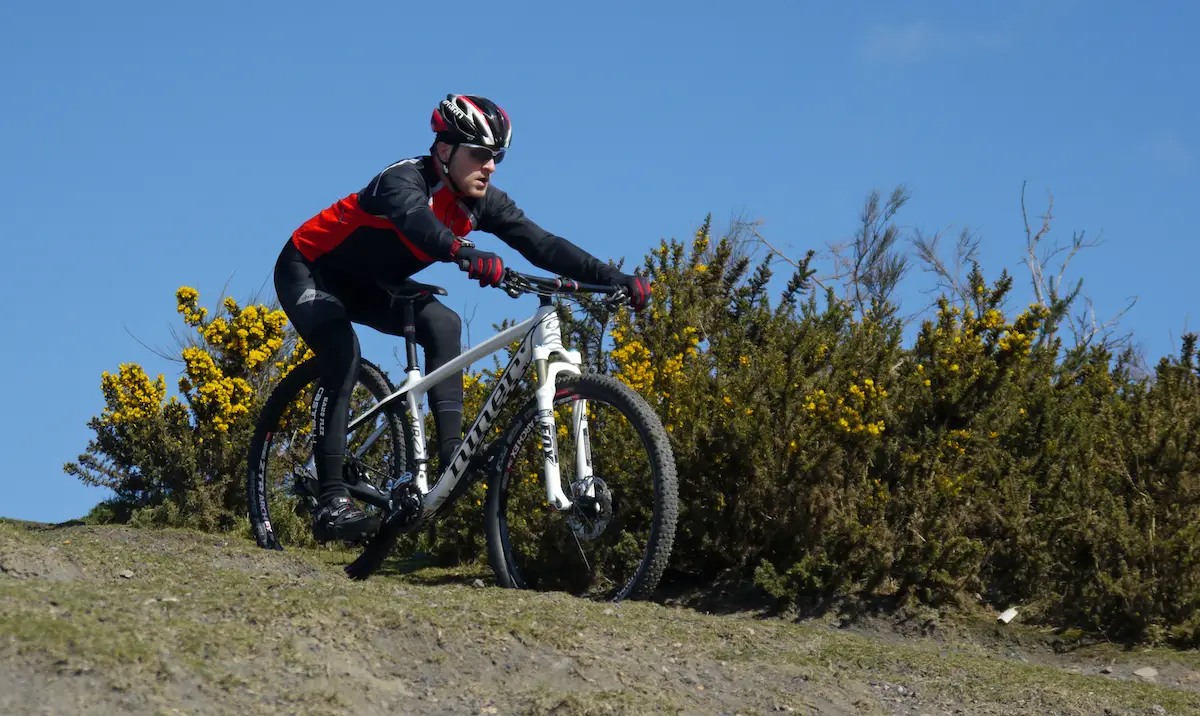
The Niner was great to ride on technical descents – the stiff frame meant it accelerated well, a slightly higher hand position meant it changed direction easily, and the confidence-inspiring tyres offered more grip than the other two bikes which helped convince you to push the speed. The downside came on lumpy/rooty/rocky undulating trails where the stiff frame and big diameter aluminium seatpost meant it was tiring to ride due to the lack of rear compliance.
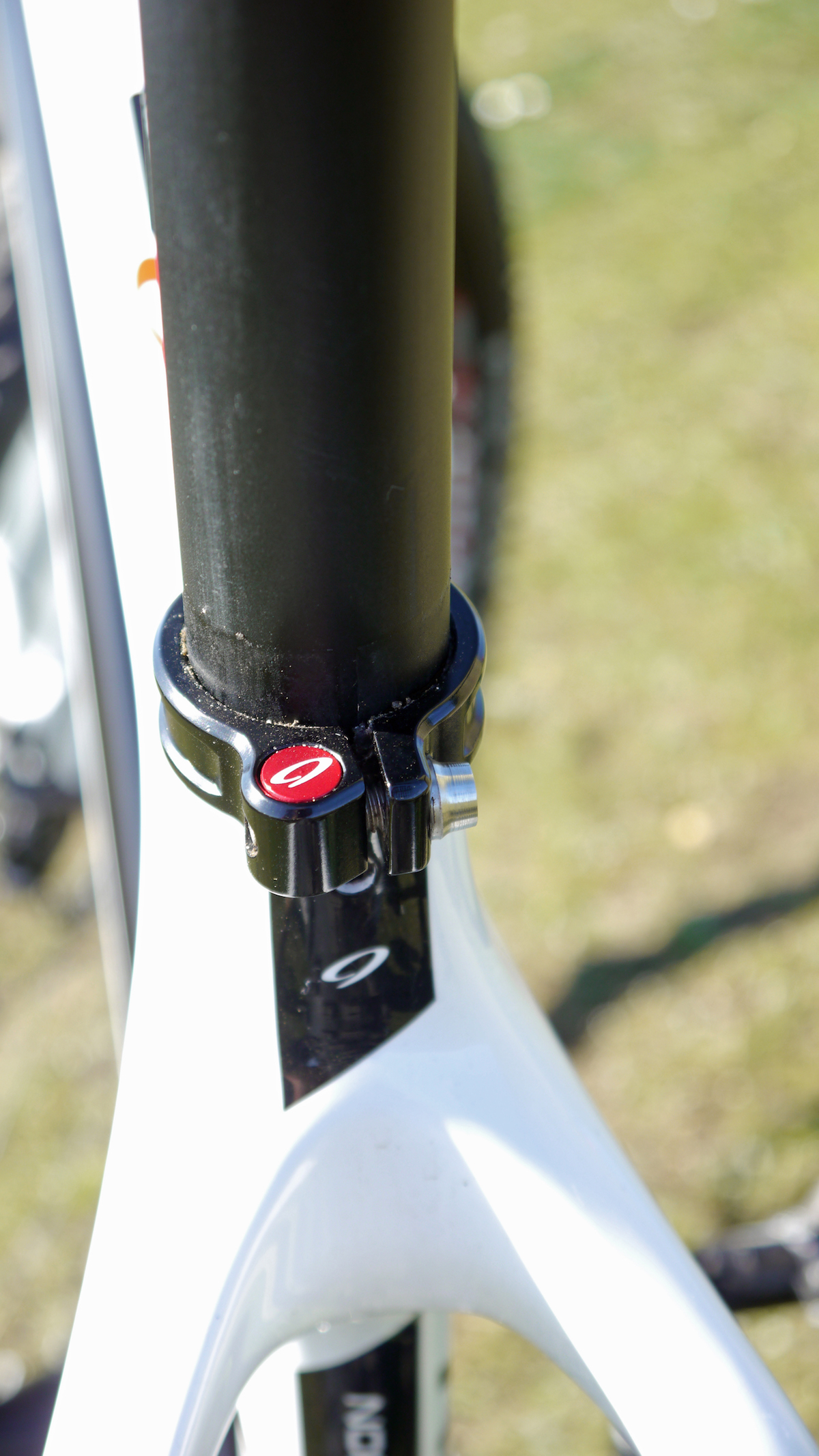
It’s likely that this could be alleviated by running the tyres tubeless (and even fitting a shimmed smaller diameter carbon seatpost). The shorter, more upright position, bigger travel forks, beefier tyres and bigger brakes all helped to give the bike a solid, dependable feel, but the extra heft and the lack of compliance that the stiff frame offered meant the Niner was better suited to trail riding rather than uber-fast cross-country racing.
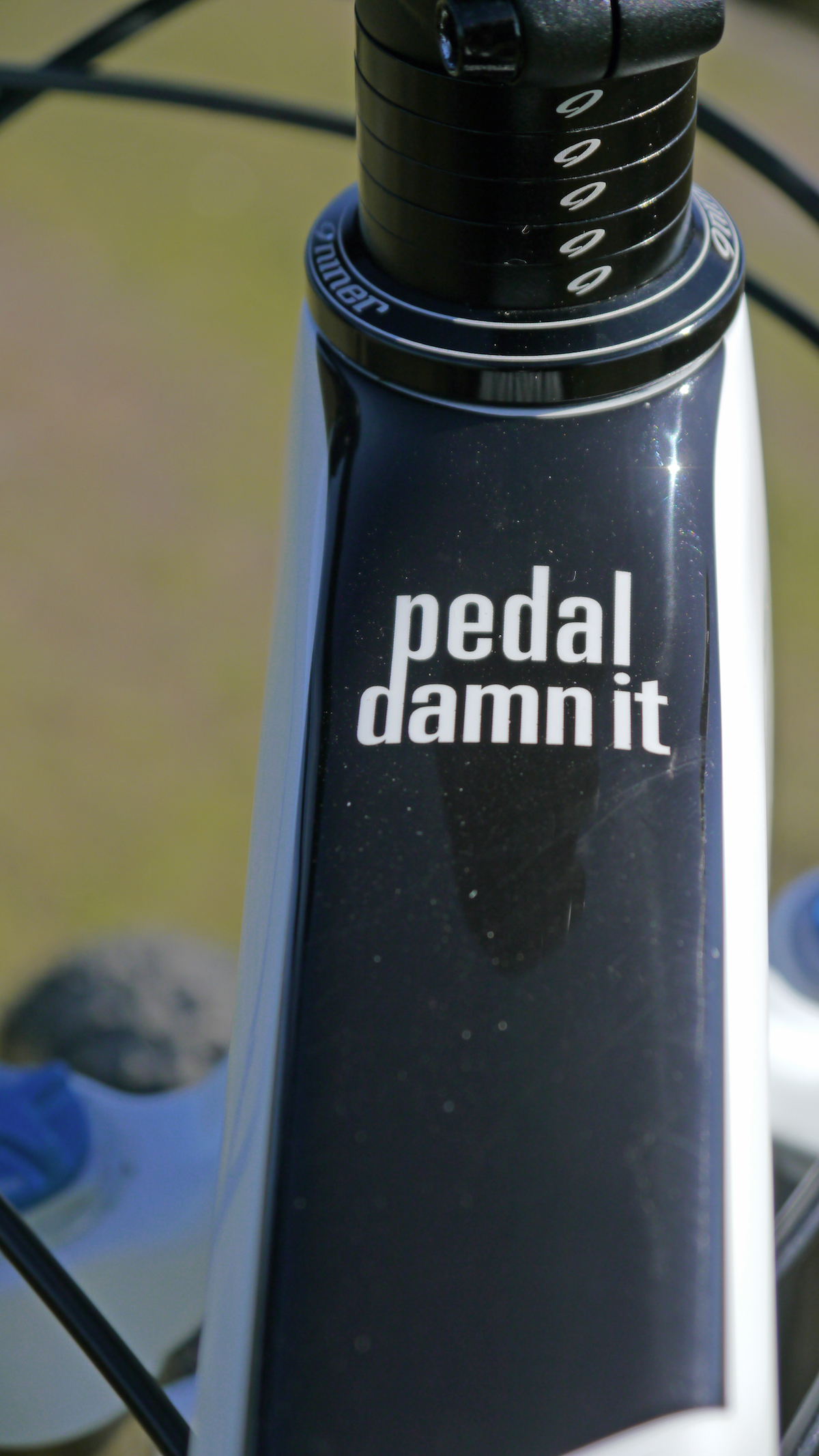
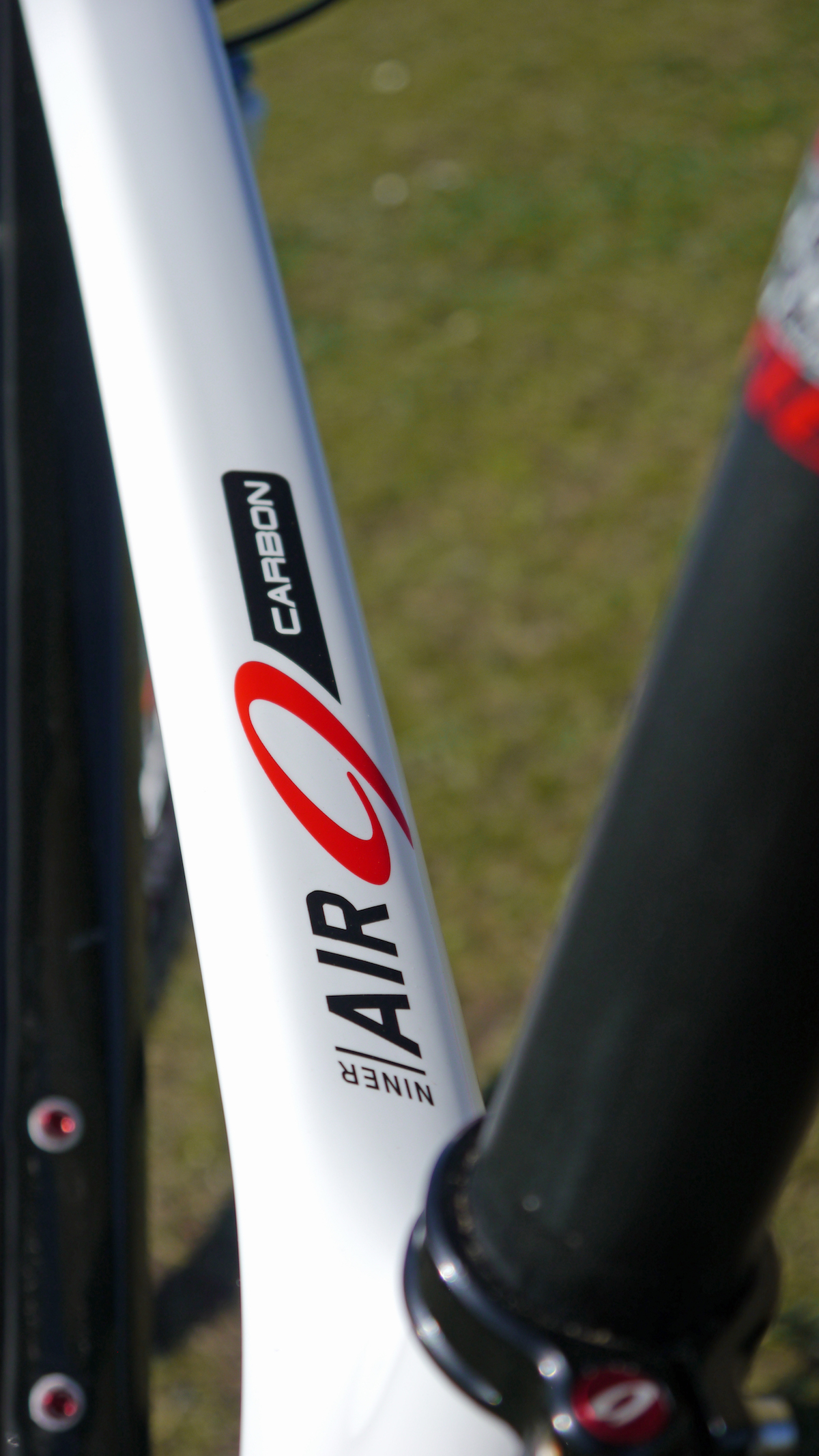
Overall
The Niner is stunning looking, well specced and well set up. The slightly beefier frame and componentry and the taller, shorter position mean it’s probably better suited to hammering around your local trails rather than full-on racing. Switch the tyres for some more minimally treaded tubeless ones and think about getting a more compliant seatpost and the combination of confident handling and good looks will win you admiring glances at the café, even if it doesn’t win you a cabinet full of trophies.
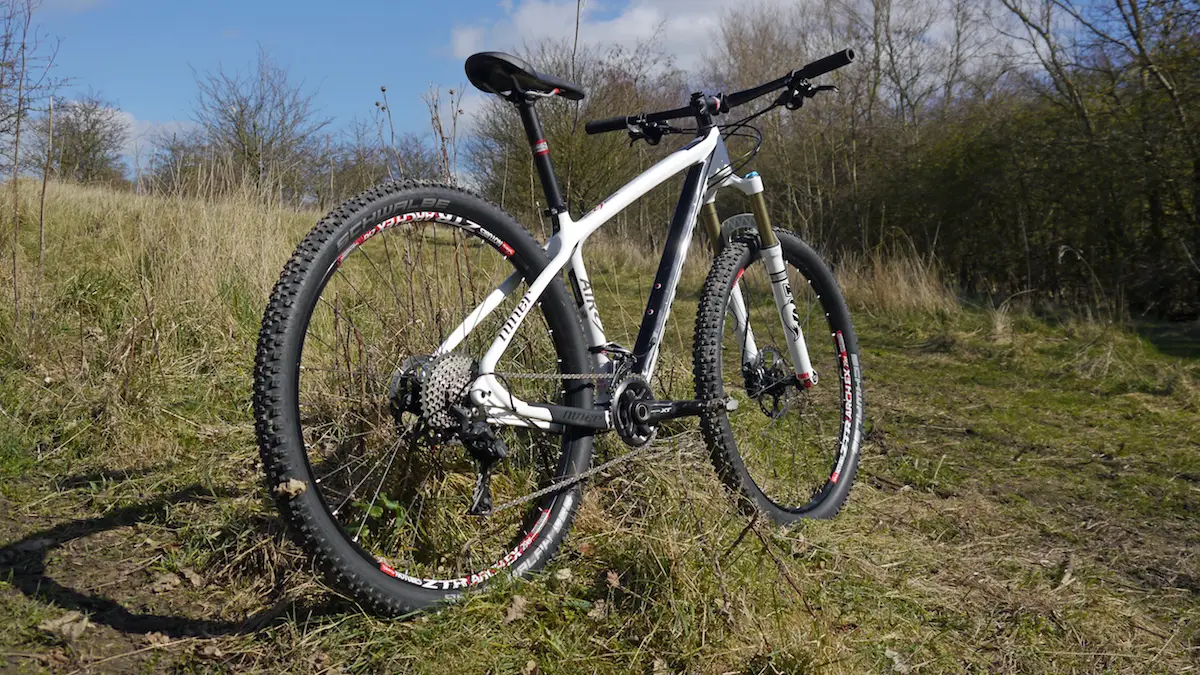
Niner AIR 9 Carbon Specifications:
- Frame // Niner carbon
- Fork // Fox Float 32 Evolution CTD
- Hubs // Stans 3.30
- Rims // Stans ZTR Arch EX
- Tyres // Schwalbe Rapid Rob/Racing Ralph, both 29×2.4
- Chainset // Shimano XT M8000 26/36
- Front mech // Shimano XT M800
- Rear mech // Shimano XT M8000 GS 11 speed shadow+
- Shifters // Shimano XT M800
- Cassette // Shimano XT M8000, 11-42 11 speed
- Brakes // Shimano XT with 180mm/160mm RT86 rotors
- Stem // Niner alloy
- Bars // Niner alloy
- Seatpost // Niner alloy
- Saddle // Niner custom
- Size tested // Med
- Sizes available // XS, S, M, L, XL
- Weight // 24lbs/11kg

